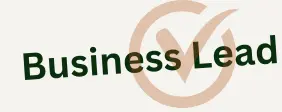In today’s competitive business landscape, direct communication is paramount. Businesses constantly seek effective ways to reach their ideal customers. This is where high-quality B2B email lists become indispensable. They are not merely collections of addresses. Instead, they represent a direct pipeline to potential clients and partners.
A B2B email list comprises email addresses of professionals and organizations. These are curated for business-to-business marketing efforts. Unlike consumer lists, B2B lists target specific company roles or industries. This precision ensures your marketing messages reach the right decision-makers. Such targeted outreach is crucial for generating quality leads. It drives meaningful engagement.
Understanding Essential B2B Email Lists for Business Development
B2B email lists are a core asset for modern marketing strategies. They enable companies to connect directly with other businesses. This direct channel bypasses much of the noise of general advertising. For instance, a software company needs to reach IT managers. A B2B list provides those specific contacts. This targeted approach saves time and resources. It also increases the likelihood of conversions.
Effective lead generation starts with a strong foundation. This foundation is often built upon a well-researched email list. These lists allow businesses to tailor their messaging. Personalization resonates deeply with recipients. It builds trust and establishes credibility. Investing in reliable B2B email lists is an investment in future growth. It fosters long-term business relationships.
Maximizing ROI with Targeted Business Email Lists
Email marketing consistently offers a high return on investment. This holds particularly true for B2B campaigns. When emails reach a relevant audience, engagement rates soar. Higher engagement translates to better lead nurturing. It paves the way for increased sales opportunities. Businesses can track campaign performance meticulously. This allows for continuous optimization.
Targeted business email lists enable precise segmentation. Marketers can categorize contacts by industry, company size, or job function. This segmentation allows for highly personalized campaigns. A tailored message is far more effective. It addresses specific pain points of the recipient. This approach avoids generic blasts. It ensures content relevancy for every contact. Building relationships becomes a strategic process.
Effective Strategies for Acquiring Quality B2B Email Lists
Acquiring valuable B2B email lists involves several key strategies. Organic list building is often the most preferred method. This includes collecting opt-ins through your website. Offering valuable content like whitepapers or webinars encourages sign-ups. Networking events and industry conferences are also great sources. These methods ensure recipients have a genuine interest in your offerings.
Alternatively, businesses might consider purchasing B2B email lists. This can provide a rapid influx of contacts. However, it requires careful consideration. It is vital to choose reputable providers. Look for sources that offer highly segmented data. Ensure their data is regularly updated and verified. For comprehensive and reliable data solutions, businesses often turn to trusted providers like Last Database. They offer extensive databases. This helps companies pinpoint their exact target audience.
Ensuring Data Purity and Segmentation for Optimal B2B Email Lists
The quality of your B2B email lists directly impacts campaign success. Dirty data leads to wasted efforts and low engagement. Regularly cleaning your lists is essential. Remove stale, duplicate, or invalid email addresses. This process improves deliverability rates. It also protects your sender reputation. A clean list ensures your messages land in inboxes, not spam folders.
Beyond purity, effective segmentation is paramount. Segment your B2B email lists based on various criteria. Consider industry, company size, revenue, or geographic location. You might also segment by the contact’s role or past engagement. For example, send specific content to C-suite executives. Different messages would go to operations managers. This level of granularity enhances personalization. It boosts relevance for each recipient. It helps convert leads more efficiently.
Navigating Best Practices and Compliance with B2B Email Lists
Successful email marketing hinges on adhering to best practices and legal compliance. Always obtain explicit consent before adding contacts to your B2B email lists. This aligns with regulations like GDPR, CAN-SPAM, and CCPA. These laws protect recipient privacy. They mandate clear opt-out options. Ignoring compliance can lead to severe penalties. It also damages your brand reputation. Ethical practices build lasting trust.
Craft compelling and relevant content for your email campaigns. Personalize subject lines and email bodies. Provide clear calls to action. Track your email metrics diligently. Monitor open rates, click-through rates, and conversion rates. A/B test different elements to optimize performance. Continuously refine your strategy based on insights. This iterative approach maximizes the value of your B2B email lists. It ensures sustainable growth for your business.
In conclusion, B2B email lists are a powerful tool for modern businesses. They offer a direct, efficient path to connect with target audiences. By focusing on list quality, segmentation, and compliance, companies can unlock significant growth. They can build strong, lasting relationships. A well-managed B2B email list is not just a contact list; it’s a strategic asset for market leadership.
model
STOP
